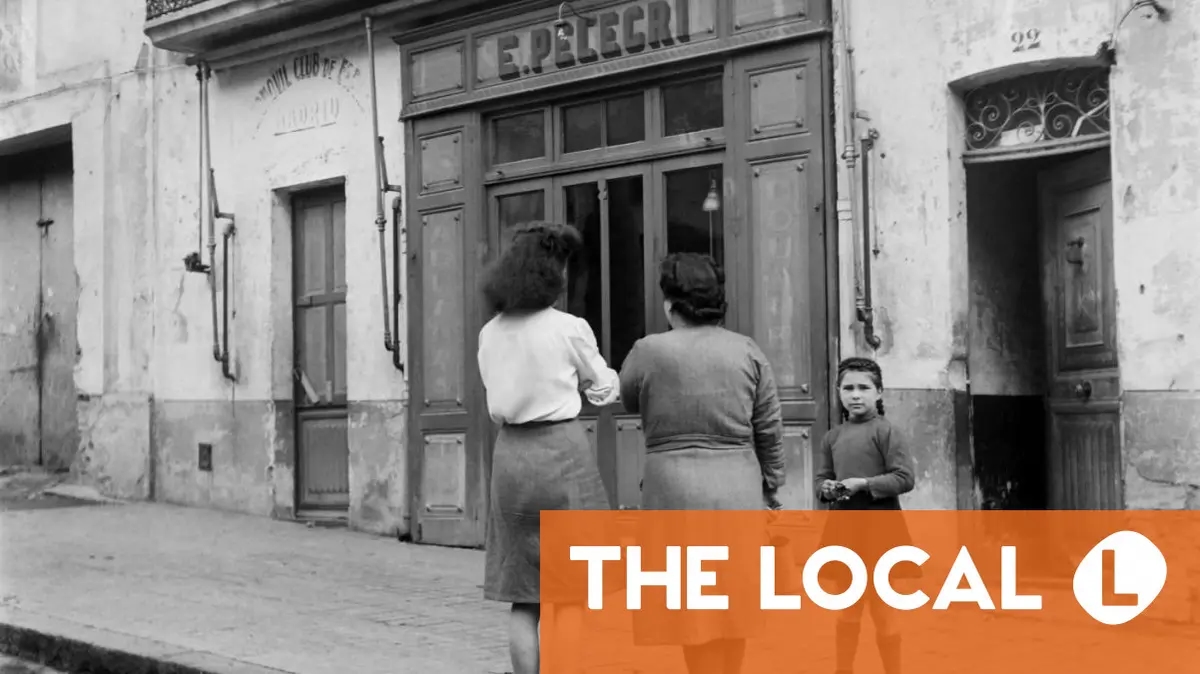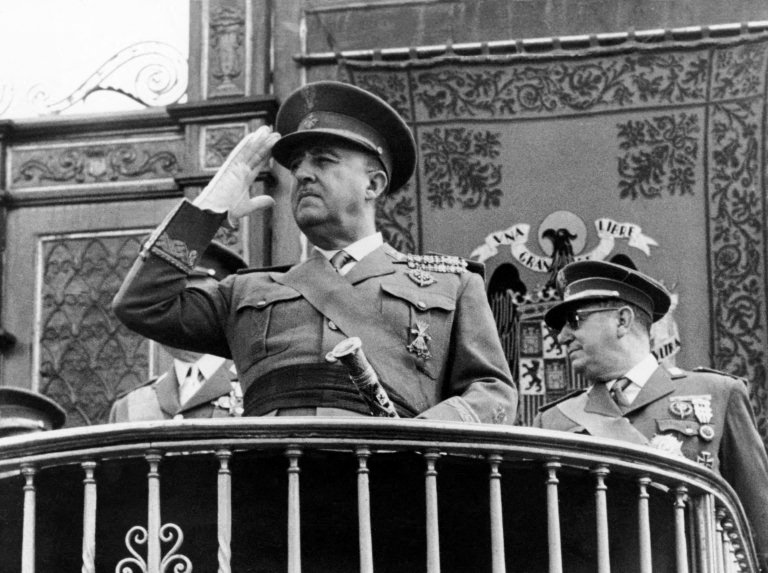Good or bad? Franco splits three generations of Spanish women

Viviana cannot fathom why some of her elders -- starting with her grandmother -- fondly remember General Francisco Franco's dictatorship, "one of the worst times for women in Spain".
"Also, knowing he was a 'friend' of Hitler, right?" the 20-year-old biology student told AFP as different generations of Spaniards grapple with his divisive legacy 50 years after his death.
The end of Franco's iron-fisted 1939-1975 rule marked a major turning point for Spanish women, whose daily lives underwent profound changes in the following decades.
Unable to open a bank account, travel freely, divorce their husbands or have an abortion, women under Franco were second-class citizens, confined to the role of mothers and spouses.
Spanish women now live in a socially liberal country viewed as a leader in promoting equality, LGBTQ rights and the fight against gender-based violence.
But Viviana's grandmother María del Pilar Sanz, 77, says she "had a good life" during Franco's rule and struggles to understand why "people complain so much".
"I am asked many times, 'with Franco, what was it like for you?'. I say, 'guys, I never had problems,'" said Del Pilar Sanz, who lives in Madrid with her daughter Mónica Fernández and Viviana.
READ ALSO: Franco dictatorship splits Spain 50 years after death
Fernández, Viviana's mother, believes some people "do not sense the lack of freedoms", even in a dictatorship, when they "are not very involved in politics".
"They have those memories that, in the end, basic matters like security or work were guaranteed. And that always brings a lot of peace of mind," said Fernández in response to her mother's pro-Franco stance.
'Big revolution'
Fernández, 53, lived through the "sudden change" in post-Franco society when "lots of situations that were previously frowned upon suddenly appeared".
She remembered how a 1981 divorce law represented a "big revolution" for society and underscored the rise of feminism.
"Now we live in a very sexualised society, which is the society Viviana lives in, where we have gone from one extreme to the other," said Fernández.
María Jesús Fraga, 78, also belongs to the older generation represented by Fernández's mother. But she does not view the past with rose-tinted glasses.

"We lived very repressed lives with very little," she told AFP, recalling how women were ordered out of church if their hair was combed wrongly.
Spain's reputation as a mass holiday destination was born under Franco from the 1950s -- but the bikini-clad women sunbathing on picturesque Mediterranean beaches were foreigners.
Highlighting the double standards in a society tightly bound to traditional Catholic morals, Fraga said Spanish women "could even go to prison" for adultery.
"If a woman committed adultery, she was punished, and if a man was adulterous, he wasn't," added the writer and university academic.
READ ALSO: 'Franco did it' - Five interesting ways the dictator shaped modern Spain
'Don't want to know'
As Spain marks half a century of change since Franco's death, his 36-year rule remains a sensitive and polarising topic.
Socialist Prime Minister Pedro Sánchez's successive governments since 2018 have sought recognition and reparations for the dictatorship's victims, but critics say he is needlessly reopening the wounds of the past.
The right-wing opposition has vowed to repeal a 2022 democratic memory law, which rehabilitates the memory of victims, if it returns to power.
READ MORE: 13 changes you may have missed about Spain’s new ‘Civil War’ law
According to polls, young people often have only fragmentary knowledge of these dark and divisive pages of Spanish history.
Viviana said she never talks about Franco with her nostalgic grandmother "because it would lead to an argument".
For Del Pilar Sanz, trying to explain her more favourable view of Franco to the younger generations is futile.
The pensioner said she has "spoken many times" about Franco with her daughter Mónica, "but she doesn't believe much of what I tell her."
As for Viviana, "it goes in through one ear and comes out of the other. Youngsters don't want to know anything about it," said Del Pilar Sanz.
Please sign up or log in to continue reading
thelocal





